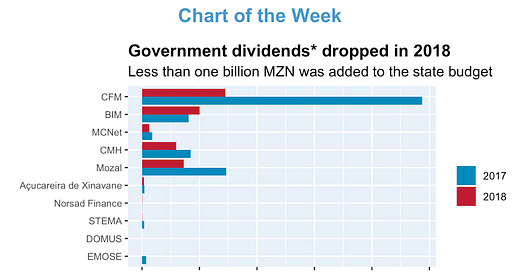Good morning. Insurgents attacked an Anadarko convoy on the road from Mocimboa da Praia to Palma on Thursday, killing one contractor and injuring six. The move represented the first direct attacks on Anadarko personnel and property since the insurgency began in Cabo Delgado over a year ago. The attack was gruesome - the Gabriel Couto employee who was killed was beheaded - but, contrary to some press reports, it does not appear to represent a major shift in insurgent tactics.
The convoy came under fire after entering a village that was already under attack by insurgents. The vehicles were then shot at after turning around to avoid the ongoing attack. No reports have yet emerged of a roadblock or any other indication that the attack on the convoy was anything other than a target of opportunity presented to the insurgents during an unrelated raid.
Zitamar can offer bespoke analysis of the security situation in Cabo Delgado and the risks it poses. Please email consultancy@zitamar.com to find out more.
That said, up to now insurgents have been very disciplined about avoiding attacks on gas companies and their infrastructure - a streak that clearly ended this week. The vehicles in the convoy were marked with Anadarko logos, and should have been identifiable in the daylight when the attack occurred, so there is little chance of mistaken identity. It is not yet clear if the choice to attack the convoy was a momentary lapse in discipline or strategic shift, but in either case Anadarko and other gas companies are now sure to beef up their security protocols.
SEE: Anadarko contractor beheaded in second Cabo Delgado attack
SEE: Anadarko convoy attacked by gunmen in Cabo Delgado
In Tete province, a smaller conflict came to an end this week when the Brazilian mining company Vale agreed to pay brick-makers in Moatize nearly $1.7 million in compensation for a decade of lost work due to Vale mining operations. The brick-makers were members of the group that staged a sit-in at the mine last October that stopped work for over a month. Vale will also pay to resettle the brick-makers and the community they represent.
SEE: Vale agrees $1.7 million payout to end 10-year Moatize dispute
South African foreign minister Lindiwe Sisulu caused a stir this week when she gave an interview claiming that her ministry had decided to ignore the American extradition request for former Mozambican finance minister Manuel Chang and instead send him back to Mozambique. The South African justice ministry soon contradicted Sisulu’s claim, announcing that Chang’s extradition will be decided only “once the court process has run its course.” As South African legal expert Peter Gastrow told Zitamar, “There seems to be confusion in the ranks of the South African authorities on the issue of Chang’s extradition… The outcome therefore seems totally unpredictable.”
SEE: Chang extradition decision still with SA courts, government spokesman says
Zitamar spoke with South African energy minister Jeff Radebe on the sidelines of the Africa Energy Indaba this week, where he revealed that he will be traveling to Mozambique in March for meetings about a possible pipeline from the Rovuma Basin gas projects to South Africa. Experts are skeptical of the pipeline, both because of the level of infrastructure investment involved and the unsettled question of who would actually provide the gas the pipeline would carry.
SEE: South Africa to continue Mozambique gas pipeline talks in March

Finally, Anadarko’s week began much better than it ended. The American energy company signed a sale and purchase agreement with Indonesia’s Pertamina for one million tonnes of Mozambican natural gas each year for the next two decades. The deal brings Anadarko’s contracted gas sales to over 9.5 million tonnes per year, putting it in position to take a final investment decision on its Rovuma Basin project by the end of next month.
SEE: Anadarko hits LNG sales target with Indonesia deal
Have a great week.



